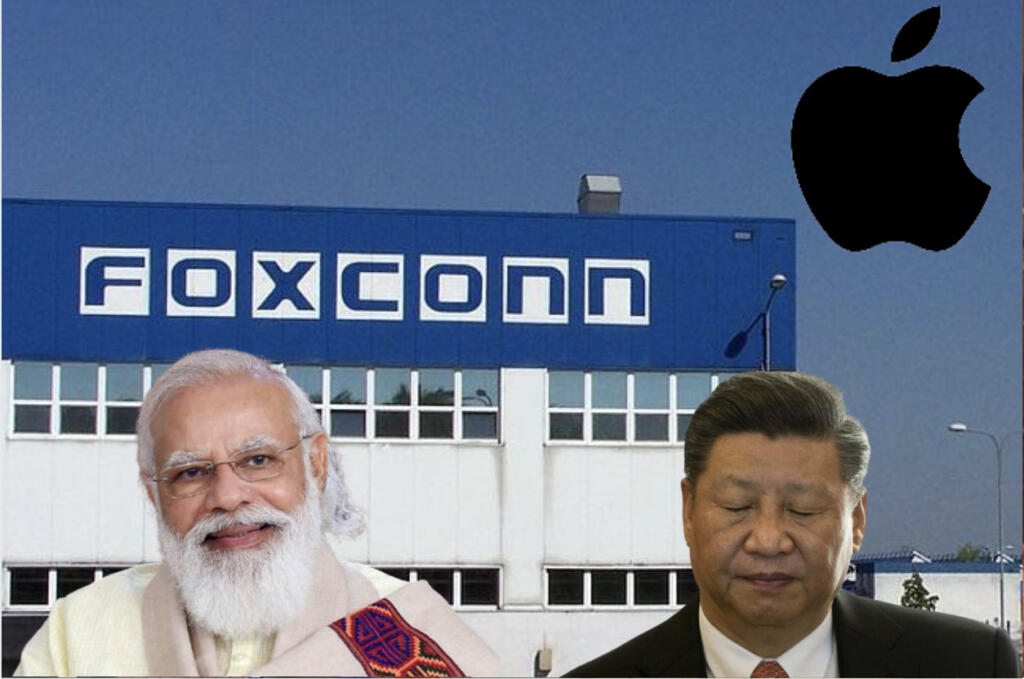Over the past few years, China has been repeatedly looking to take the lead in the EV sector. It has built way too much of hype around its EV makers and even the highly indebted real estate giant China Evergrande Group, which is now on the verge of defaulting, had tried to launch an Electric Vehicle venture last year. It is a different matter that Evergande’s Electric Vehicle startup worth $87 billion failed to produce a single automobile.
China has been looking to mobilize investors by building up hype about its EV industry. However, Apple and Foxconn have refused to take the bait of manufacturing EVs in China and have dashed Beijing’s hopes of becoming a global EV powerhouse, by choosing Japan and India as their favoured partners.
Apple dumps China; chooses Japan
As per Reuters, Apple Inc’s talks with China’s CATL and BYD over battery supplies for its planned EVs have stalled. Three people with knowledge of the matter suggested that the refusal of Chinese firms to set up teams and build plants catering solely to Apple.
As Apple’s deal with Chinese firms fell out, the American tech giant decided to consider Japanese EV battery makers and sent a team to the East Asian nation this month. Panasonic Corp is one of the companies in consideration to serve as a supplier of EV batteries to Apple, which is said to be planning the launch of an electric car by 2024.
Read more: Apple and Tesla turn to India as China struggles under an intense energy crisis
Apple is likely to finalise a deal for EV batteries in Japan because the tech giant is in a hurry after the Apple car project head Doug Field decided to return to Ford Motor Co. No company including Apple wants to delay the rollout of EVs, as global markets will junk conventional fuel-based cars over the next few years and this is the time to cash in on the rise of EV markets.
Foxconn to produce EVs in India, Europe, and Latin America
Liu Young-way, Chairman of Taiwanese tech major Foxconn has revealed plans to produce electric vehicles (EVs) in Europe, India, and Latin America. Young-way also said that Foxconn’s plans include “indirectly” cooperating with German automakers. He suggested that the timeline would be Europe first, then India and Latin America.
Foxconn’s plans go in line with Prime Minister Modi’s ‘Make in India’ initiative. Young-way said that his company would be using what it describes as the BOL model, that is, Build, Operate, and Localise. Foxconn will invest with domestic partners to build and operate local factories in the host country and then sell the output to local consumers.
Foxconn’s EV ambitions are running at a fast pace and the company has already finalised deals with American startup Fisker Inc and Thailand’s energy group PTT PCL.
Foxconn is presently functioning as a contract electronics maker and enjoys a technological edge in software and semiconductor technology. It wants to use these inherent advantages for dominating the supply and services in the global EVs market. By between 2025 and 2027, Foxconn plans to provide components or services for 10 per cent of the electric automobiles in the world.
Speaking about how advancement in software and semiconductor technology positioned Taiwan as a prospective leader in the EV industry, Young-way said, “These are the advantages that Taiwan has cultivated for many years and is best at.”
Why are Apple and Foxconn not interested in China?
Apple and Foxconn are expected to be an integral part of the global EV revolution. Now, their reluctance to get involved in China for the upcoming EV projects may as well derail China’s EV ambitions.
The hostile business environment in China and President Xi Jinping’s vindictive campaigns against tech giants is the reason why Apple and Foxconn don’t seem too excited to invest in China.
Apple has been at the receiving end of enhanced scrutiny by Beijing that threatens to dismantle the ‘closed platform’ character of Apple’s AppStore that allows the American company to control applications, content, and/or media, and restrict access to unapproved applicants or content. Last month, the Chinese Supreme Court allowed consumers to sue Apple for alleged abuse of market power.
And then the ongoing power crisis makes industrial activity in China difficult. Last month, some Apple suppliers had to suspend operations in China due to a power crunch. Apple is also said to be slashing the production of iPhone 13 production targets for 2021 by as many as 10 million units as its suppliers fail to secure enough components. An EV venture in a country with a severe power crisis may not be such a good idea.
Moreover, China is not really a reliable partner in the EV sector. Tesla CEO Elon Musk learnt it the hard way when Beijing started generously funding Xpeng Motors, a Chinese Electric Vehicle (EV) maker, touted as China’s challenger to Tesla. China has started phasing out Tesla and is using heavily subsidised local manufacturers to exclude foreign players. This is why no one including Apple and Foxconn wants to invest in the Chinese EV industry. The future of humanity will therefore not be made in China, as the Communist nation isn’t invited to the EV revolution.
